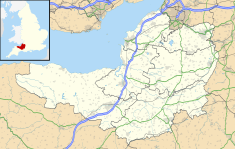
Glastonbury Abbey was a monastery in Glastonbury, Somerset, England. Its ruins, a grade I listed building and scheduled ancient monument, are open as a visitor attraction.
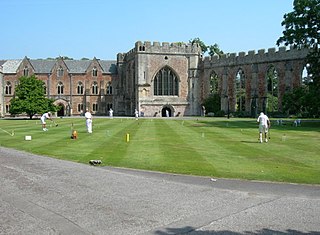
The Bishop's Palace and accompanying Bishops House at Wells in the English county of Somerset, is adjacent to Wells Cathedral and has been the home of the Bishops of the Diocese of Bath and Wells for 800 years. It has been designated by English Heritage as a Grade I listed building.

The parish Church of St. Quiricus and St. Julietta in Tickenham, Somerset, England, has 11th-century origins, with the nave and chancel being extended by the addition of aisles and the south chapel in the early 13th century. It has been designated as a Grade I listed building.

The Church of All Saints in Monksilver, Somerset, England dates from the 12th century and has been designated by English Heritage as a Grade I listed building. The church has a square west tower, built in the 14th century,
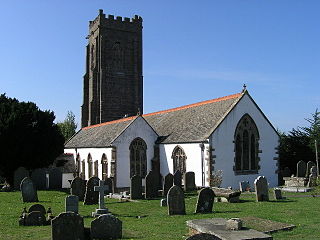
The Church of St Decuman in Watchet, Somerset, England has a 13th-century chancel with the rest of the church being from the 15th century. It has been designated as a Grade I listed building.
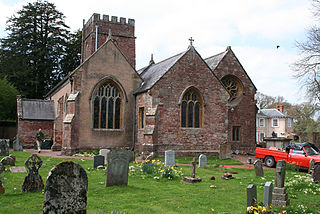
The 'Church of All Saints in Nynehead, Somerset, England dates from the 14th century and has been designated as a Grade I listed building.
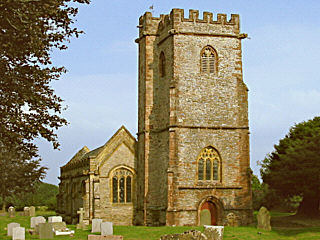
The Church of St Mary & All Saints in Broomfield, Somerset, England was built in the 15th and 16th centuries and has been designated as a Grade I listed building.

The Church of the Holy Cross in Middlezoy, Somerset, England dates from the 13th century and has been designated as a grade I listed building.
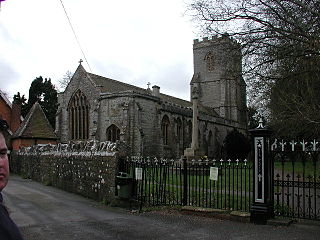
The Church of St Peter in Huntspill, Somerset, England was established by 1208, rebuilt around 1400, and extended in the early to mid 15th century. It was gutted by fire in 1878 and restored over the next two years. It has been designated as a Grade I listed building.

The Church of St Mary in Meare, Somerset, England, was formerly in the keeping of Glastonbury Abbey, and dates from 1323. It was built for Abbot Adam of Sodbury, and is a Grade I listed building.

The Church of St Nicholas in West Pennard, Somerset, England, dates from the 15th century and is a Grade I listed building.

Described as "one of the most ambitious parish churches in Somerset", the present Church of St John the Baptist in Glastonbury, Somerset, England, dates from the 15th century and has been designated as a Grade I listed building.

The Church of All Saints in Langport, Somerset, England, has 12th-century origins but was rebuilt in the late 15th century. It is recorded in the National Heritage List for England as a designated Grade I listed building.

The Church of St Bartholomew in the parish of Yeovilton, Somerset, England, was built around 1300. It is a Grade II* listed building.
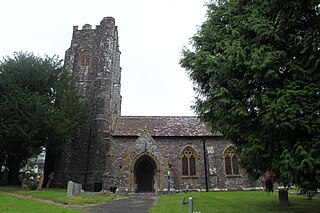
The Church of All Saints is an Anglican church in Chipstable, Somerset, England which probably dates from the early 13th century. It is located in the deanery of Tone, within the diocese of Bath and Wells. It is a Grade II* listed building.

The Anglican Church of St Andrew in West Bradley, within the English county of Somerset, dates from the 14th century. It is a Grade II* listed building.

The Anglican Church of St John the Baptist in Chilcompton, within the English county of Somerset, was built in the 15th century. It is a Grade II* listed building.

The Anglican Church of St Francis in Stawell, Somerset, England was built in the 13th century. It is a Grade II* listed building.

The Anglican Church of St John in Cutcombe, Somerset, England was built in the 13th and 14th centuries. It is a Grade II* listed building.

The Anglican Christ Church in Frome, Somerset, England, was built in 1817 and 1818. It is a Grade II* listed building.

